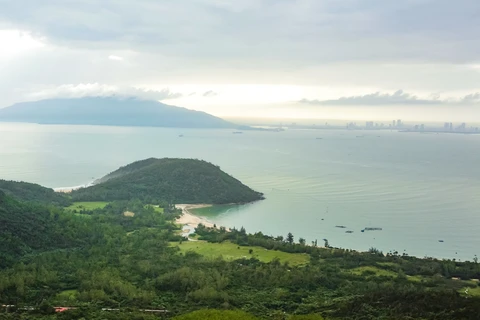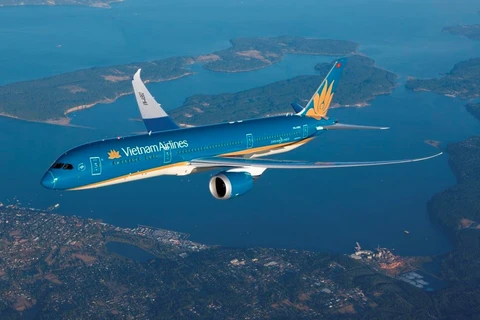 A deserted square in Brussels on January 22, 2021, during a ban of foreign tourists aimed at containing the spread of COVID-19. (Photo: Xinhua/VNA)
A deserted square in Brussels on January 22, 2021, during a ban of foreign tourists aimed at containing the spread of COVID-19. (Photo: Xinhua/VNA)Hanoi (VNA) - The worldwide outbreaks of the COVID-19 pandemic have caused constant changes in travellers’ psychology and need. In the new context, they show special attention to environmental protection and responsible tourism.
It can be said the pandemic has established a “new world order” in tourism. In fact, the worldwide outbreaks of COVID-19 have caused constant changes in travellers’ psychology and need.
A number of surveys show that after the pandemic, travellers are paying special attention to responsible and sustainable tourism. This trend has attracted attention from managers and many domestic firms have promptly built new and sustainable products.
Responsible tourism
Among the 9,000 adults surveyed in the US, Britain, Germany, China, the UAE, and Australia, 60 percent expressed their desire for higher responsibility to the environment and the society in their tours. It is worthy to note that the rate among the young travellers (aged between 18 and 24) is 69 percent, higher than the 48 percent recorded in the group aged 55 and above.
This is a finding in a new worldwide survey announced by the THG Hotels & Resorts. It also showed that responsible tourism is an issue that attracted the greater than ever attention from the people after the COVID-19 pandemic. Not only hoping to contribute more the planet and the community, they are also ready to spend more to experience responsible tourism.
The survey also revealed that consumers accept to pay an average additional 31 percent to the accommodation facilities they know of responsible operation, 51 percent ready to pay an additional 20 percent each night, and 46 percent tend to avoid tourism activities that may cause negative impact on local environment and community.
This shows that more responsible and greener tourism is further becoming a widespread trend in the world, evidenced by the fact that 82 percent of the adults surveyed said they are committed to long-established habits with the two most popular acts of reusing bath towels and walking short distances to tourist destinations; and the habit of correctly discharging and recycling rubbish occupies the number-one position.
Asked what should not be done as a responsible tourist, 47 percent of the people surveyed said it is the failure to turn off the air conditioners before leaving their rooms.
Experts hold that the COVID-19 pandemic has caused positive changes and shaped the tendency of responsible tourism among travellers in the time to come.
“Sustainable tourism train" in Vietnam
Never have the VGREEN and the Hanoi Travel Association hoped so much to establish a “sustainable tourism train” through the alliance among the travel firms to jointly restore responsible tourism after the COVID-19 pandemic. It is from the desire that they built a tour named “Northwest Caravan”.
Association Chairman Phung Quang Thang said over the past year, both firms and tourists have gained many experiences in fighting the pandemic, living along with it, and having safe tourism.
According to the official, sustainable tourism at the moment is a driving force for firms to realise the programme on restoring responsible tourism.
With the “Northwest Caravan”, visitors will feel more relaxed to enjoy the life in the attractive land rich in cultural and historical values. The distance may be long, but the nature and culture of the northwest land will help them feel it shortened, he said.
The pandemic is causing constant changes in the psychology of travellers and the current trend among domestic tourists is taking group or family tours, driving their own vehicles, and experiencing the life in destinations close to the nature.
To quench the thirst for tours, firms are forced to make changes such as accepting last-minute orders, ensuring safety against the pandemic, protecting relics, reducing plastic wastes, preserving resources, and supporting the community.
Deputy Minister of Culture, Sports and Tourism Nguyen Van Hung has asked the Vietnam National Administration of Tourism to consider holding national meeting on tourism planning so as to reorient and develop tourism in the direction of sustainability, responsibility and preserving resources./.


























